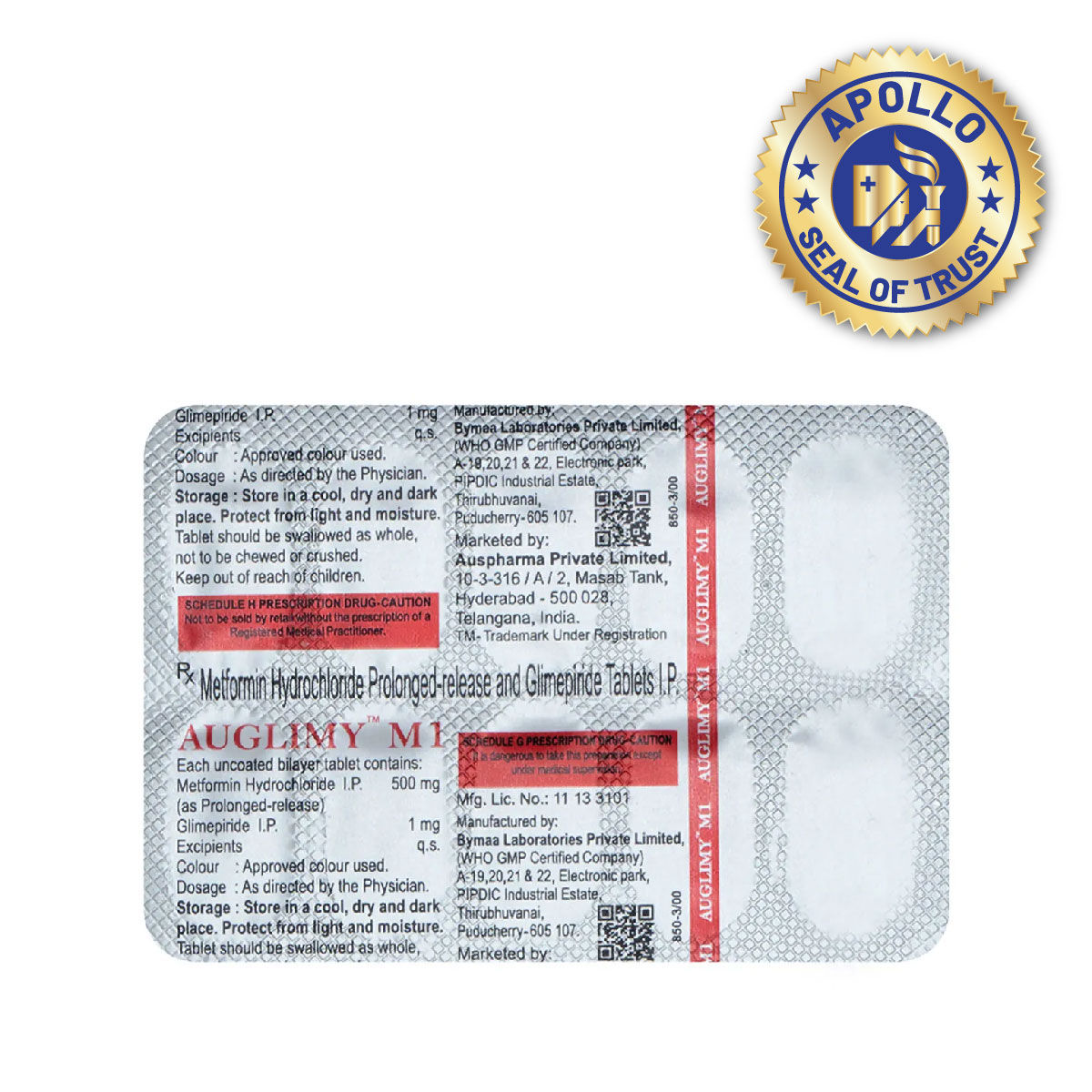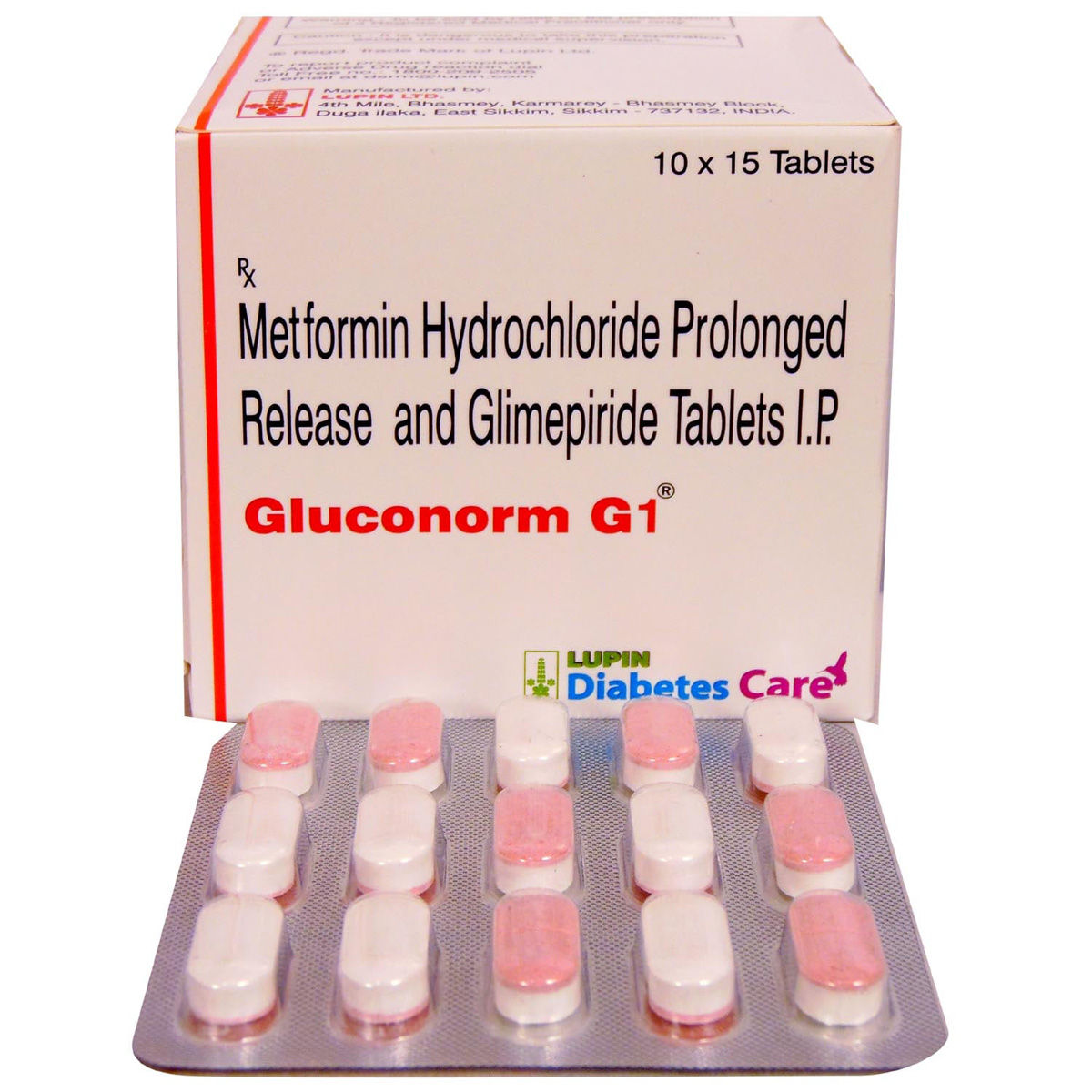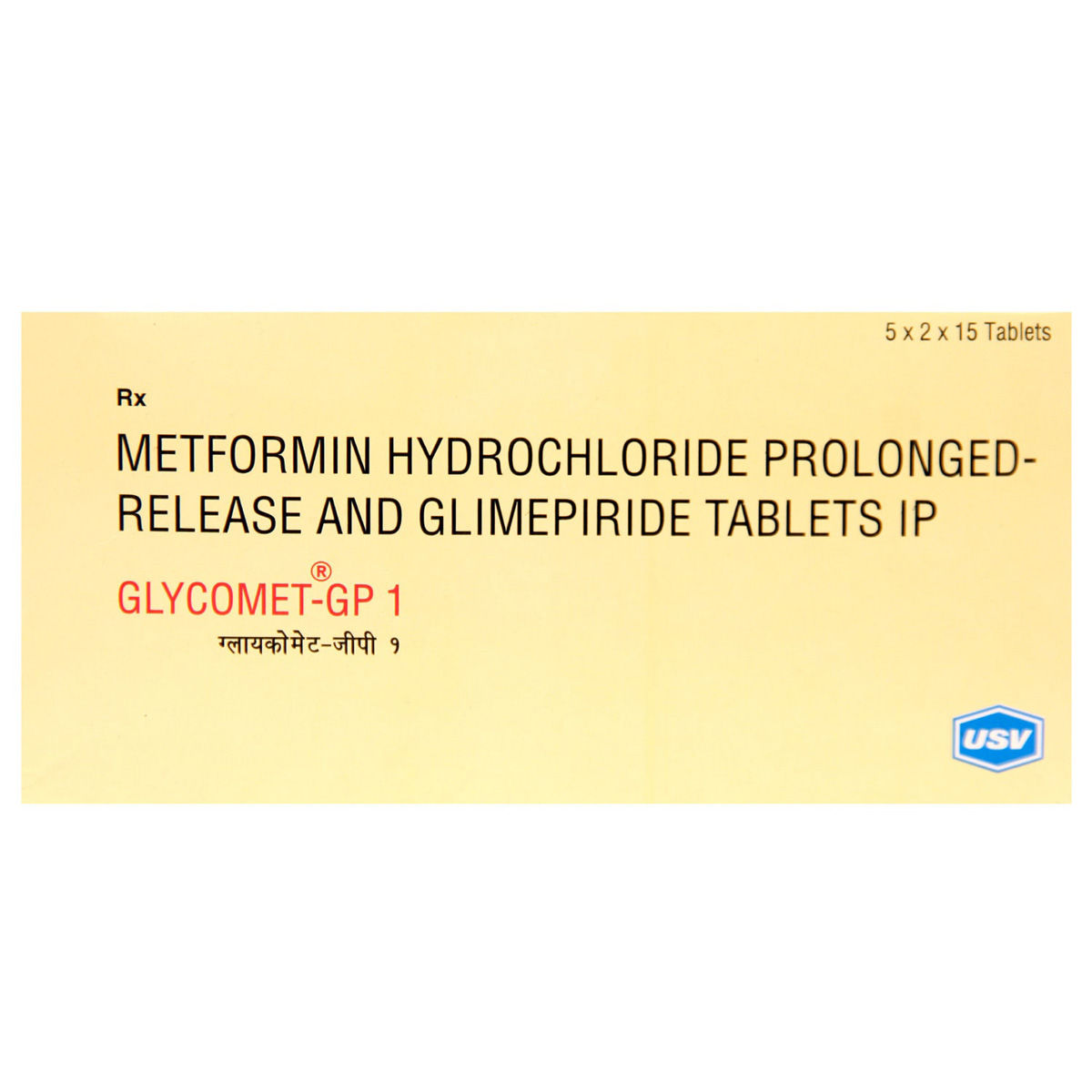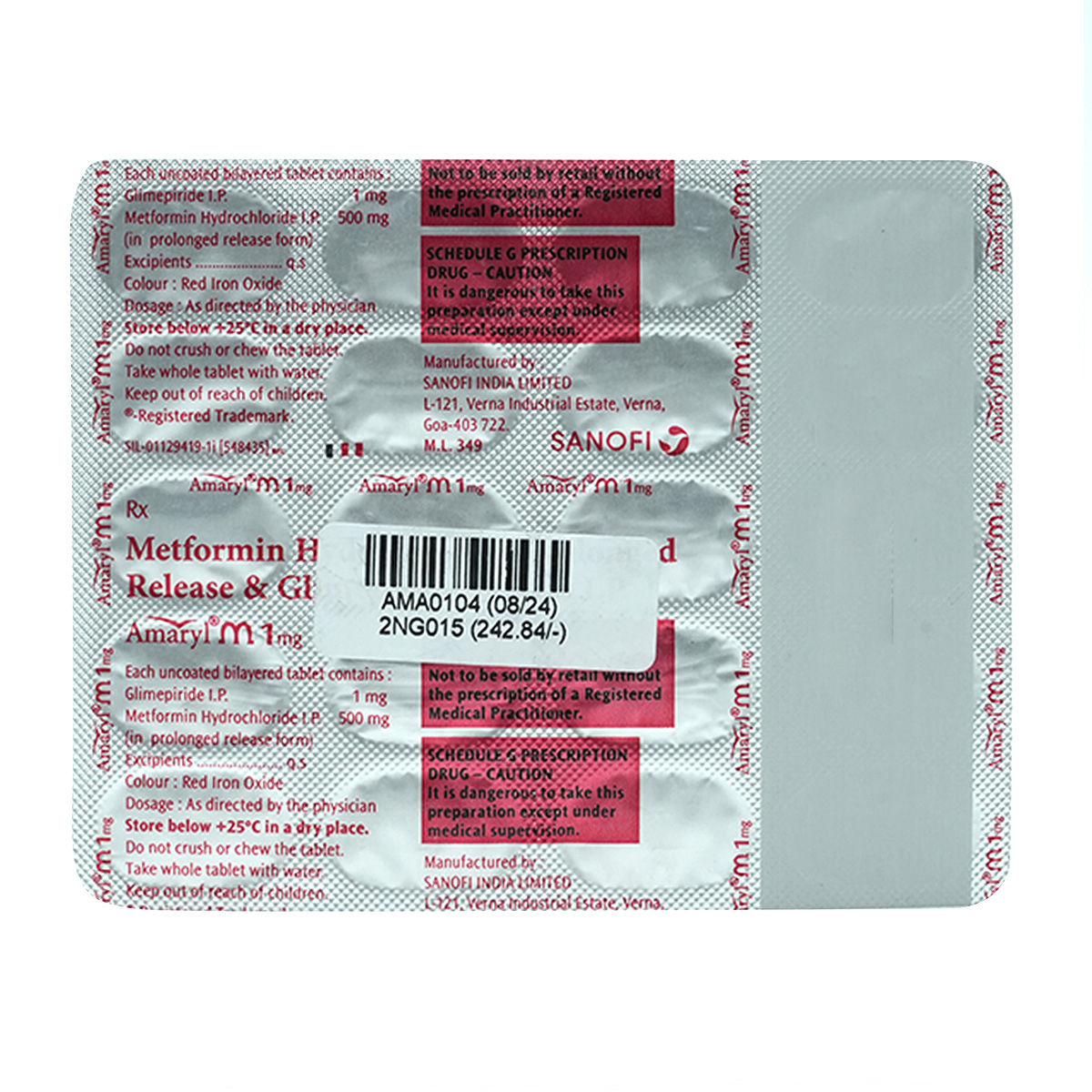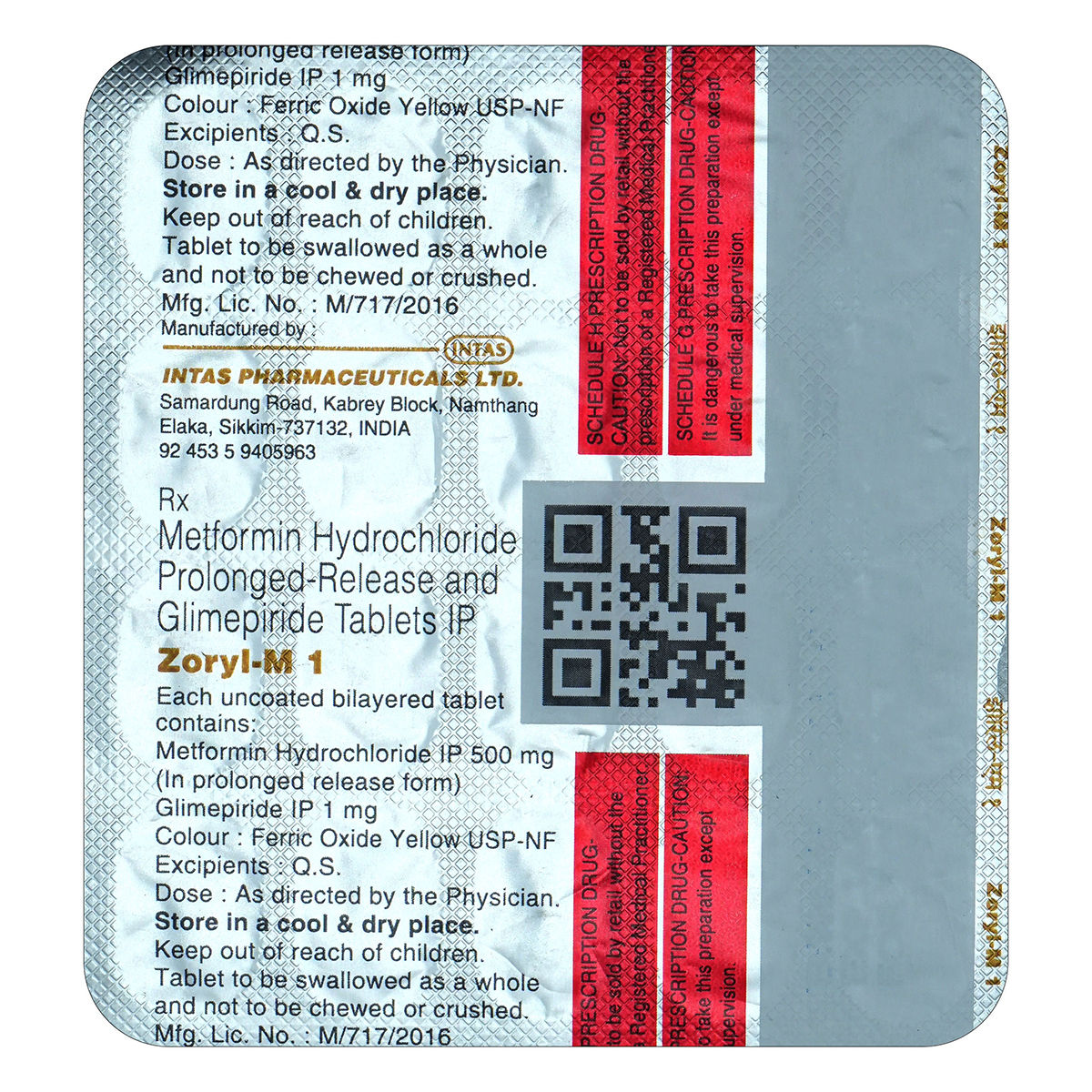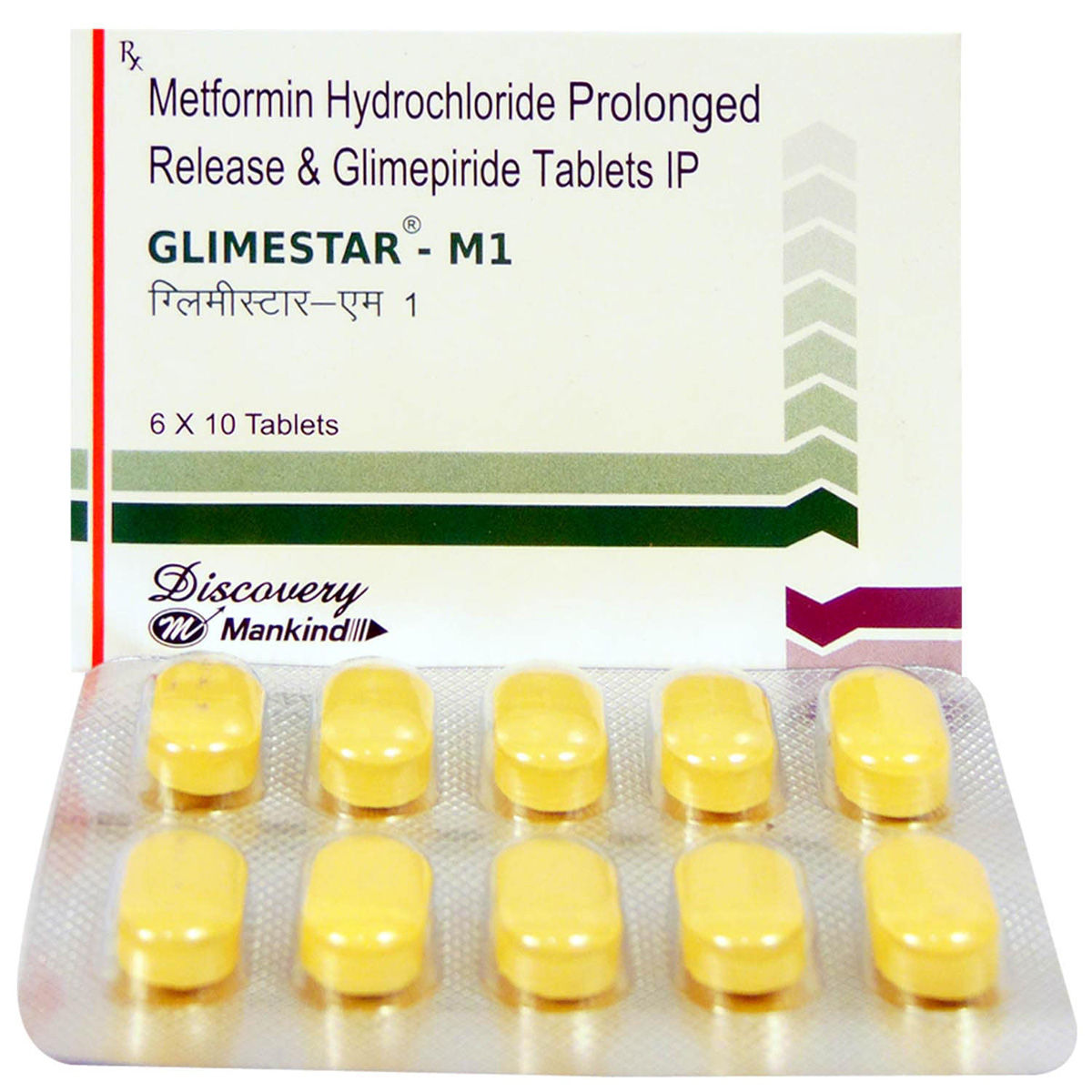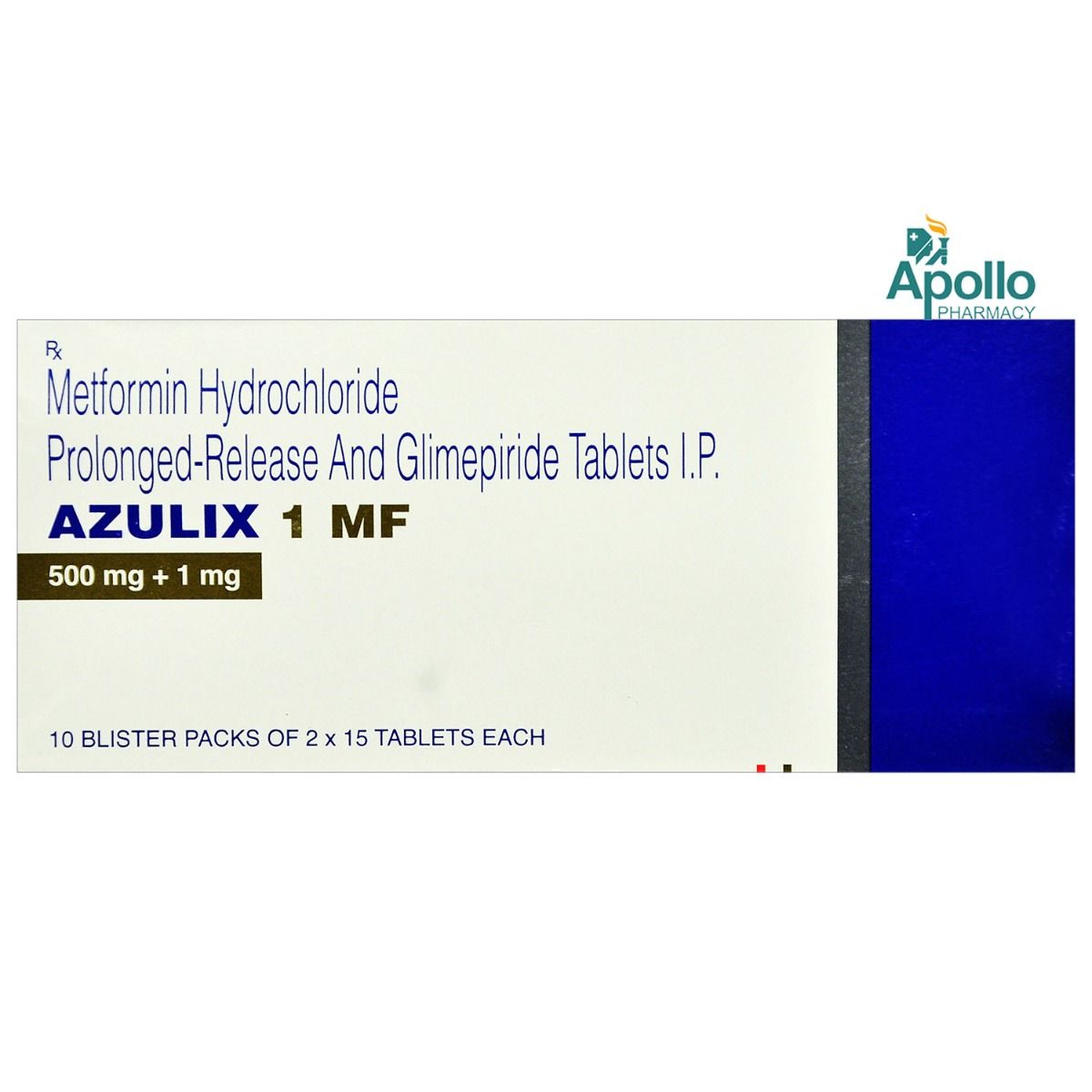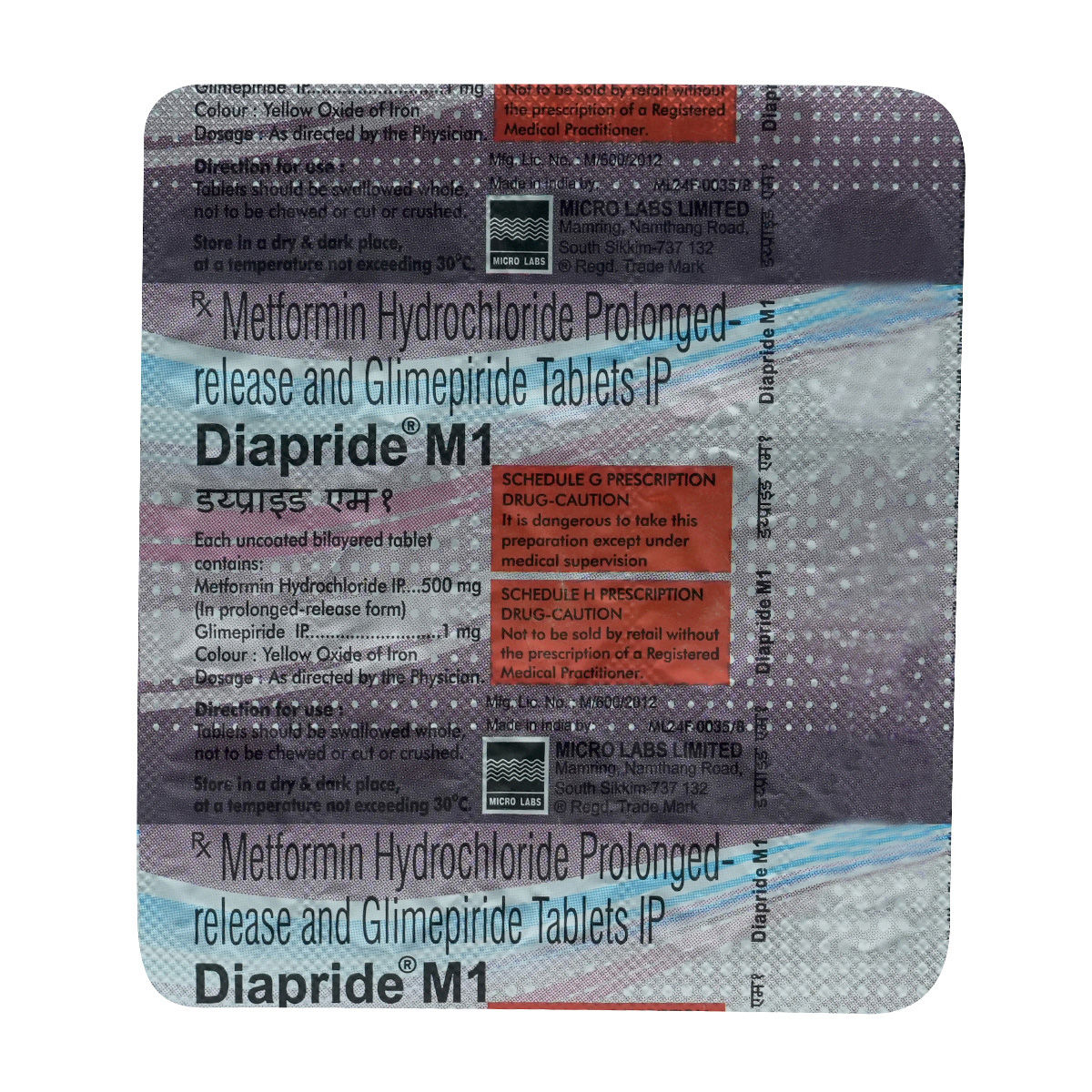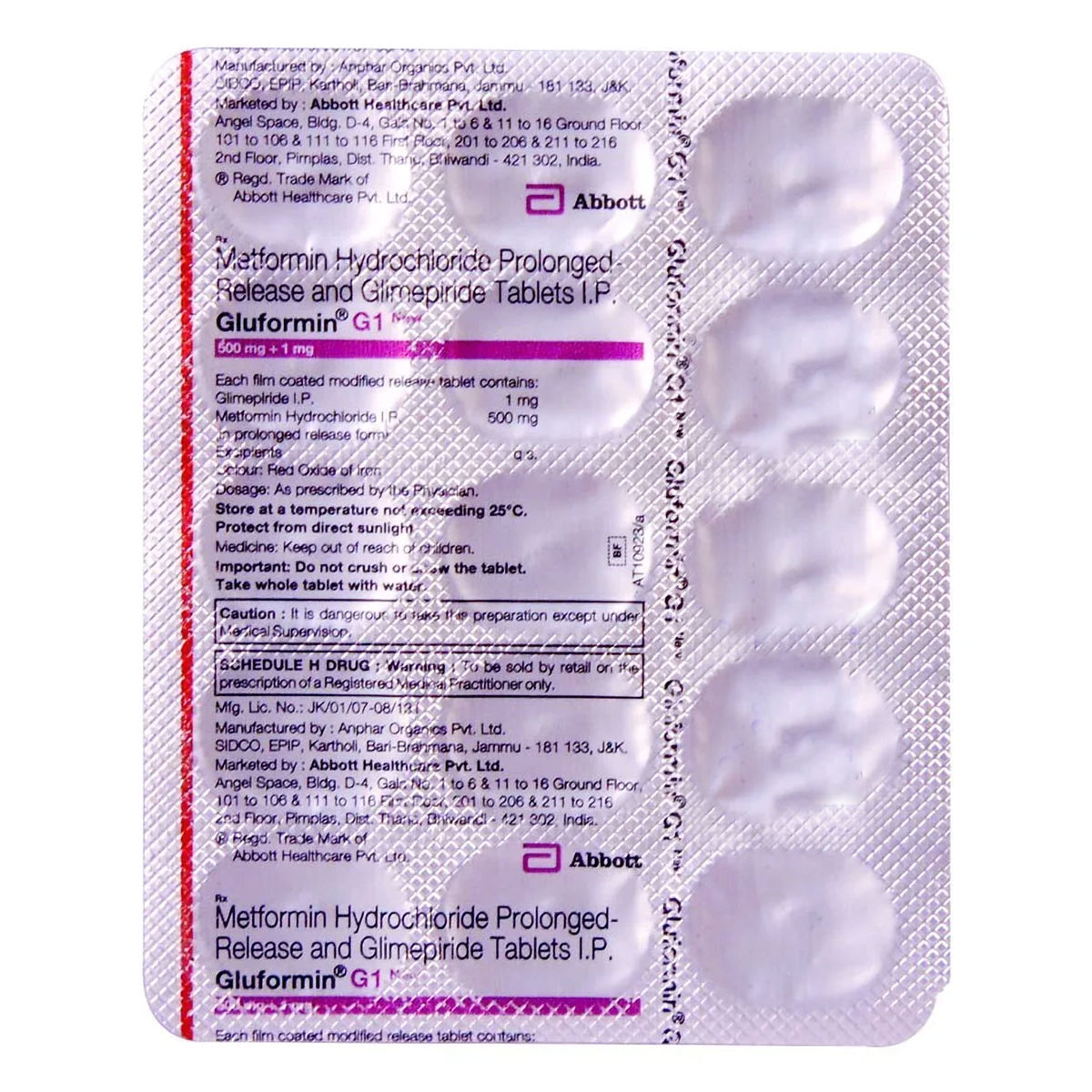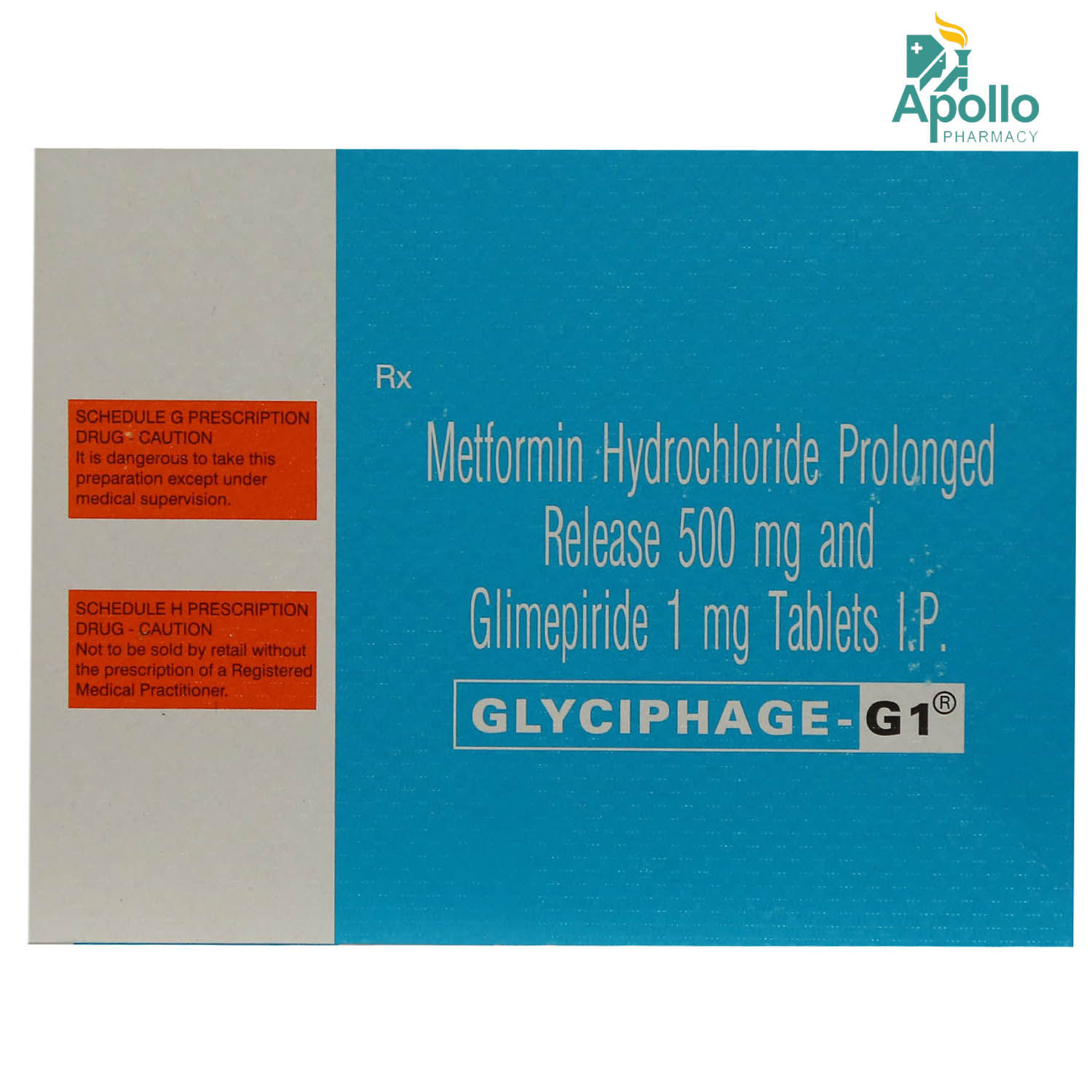Glivipride M1 Tablet 15's
Glivipride M1 Tablet is used to treat type 2 diabetes. It contains Glimepiride and Metformin which works by decreasing the amount of glucose absorbed from the food and the amount of glucose made by the liver. It helps the pancreas to produce insulin and helps the body use insulin efficiently. In some cases, this medicine may cause side effects such as stomach pain, nausea, diarrhoea, vomiting, headache or metallic taste. Inform the doctor if you are pregnant or breastfeeding, taking any other medication, or have any pre-existing medical conditions.
₹108*
MRP ₹120
10% off
₹102*
MRP ₹120
15% CB
₹18 cashback(15%)
Free Delivery
With Circle membership
(Inclusive of all Taxes)
This offer price is valid on orders above ₹800. Apply coupon PHARMA10/PHARMA18 (excluding restricted items)
Know Your Delivery Time
Provide Delivery Location
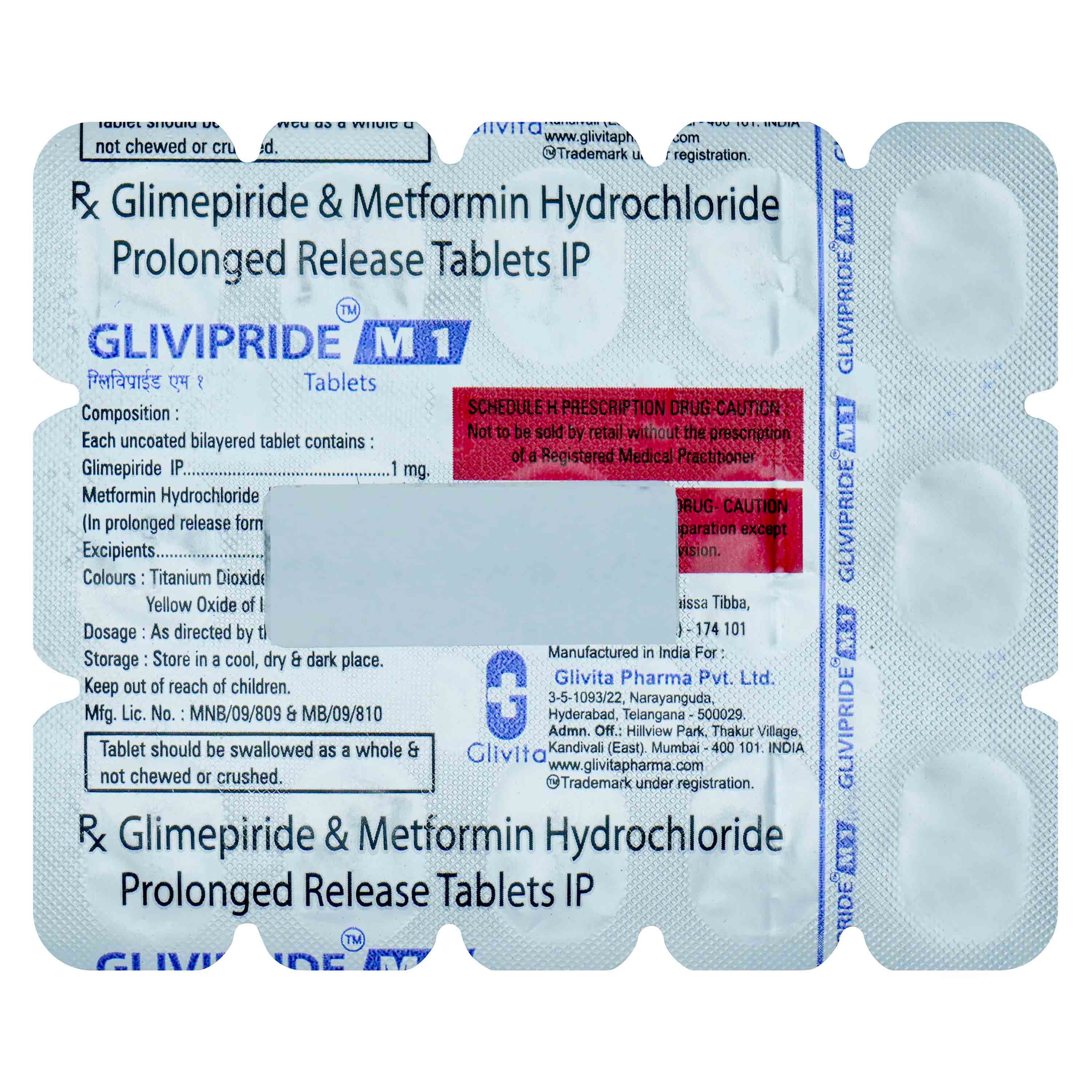
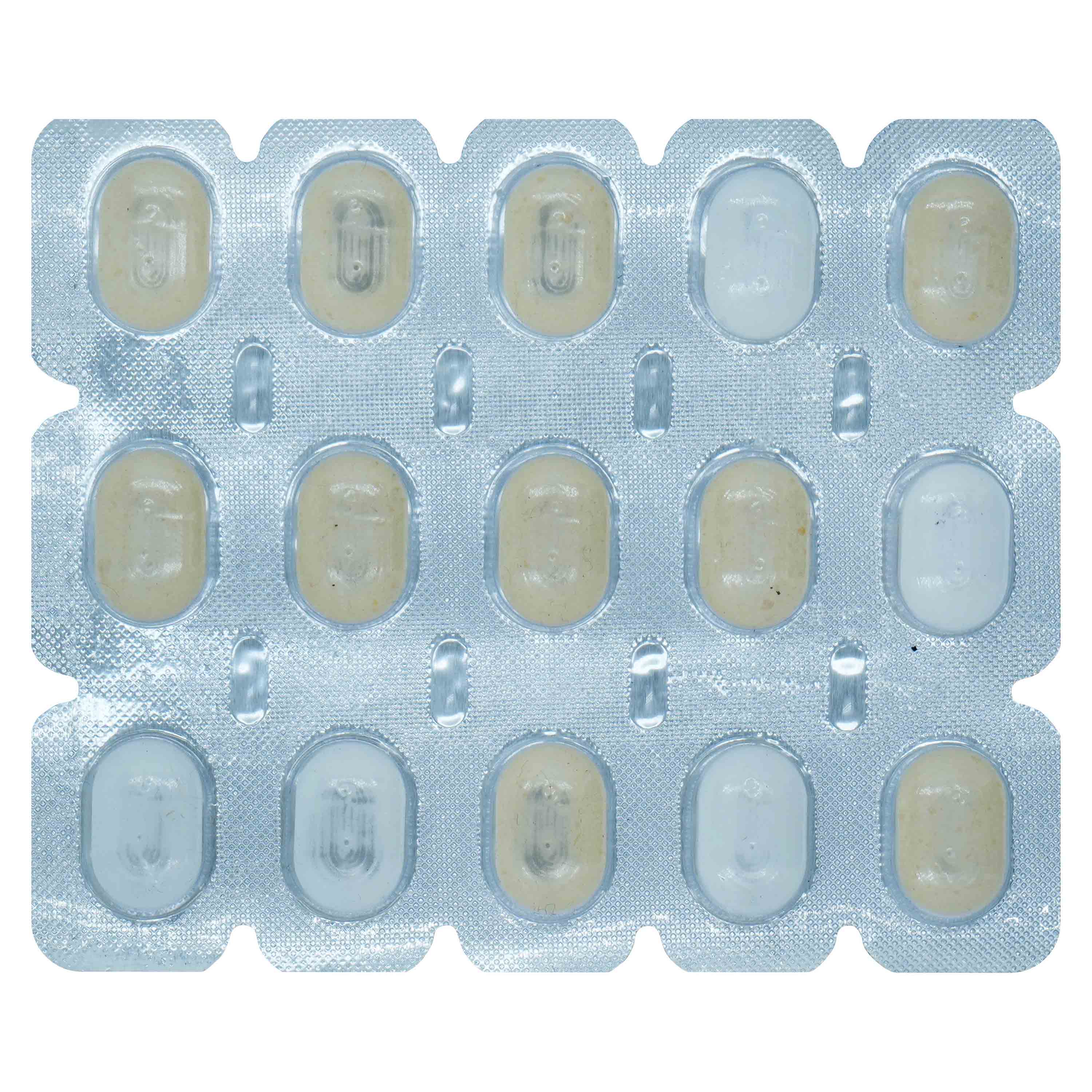
Whats That

Secure Payment

India's Most Trusted Pharmacy

Genuine Products
Synonym :
Composition :
Manufacturer/Marketer :
Consume Type :
Return Policy :
Expires on or after :
About Glivipride M1 Tablet
Glivipride M1 Tablet belongs to a class of medicines called anti-diabetic drugs used in the treatment of type 2 diabetes, especially in patients whose blood sugar levels are not controlled by diet and exercise alone. Type 2 diabetes is a chronic (long-lasting) condition that affects the way our body processes glucose. People with type 2 diabetes either do not produce enough insulin, or the insulin produced is unable to perform its function in the body (insulin resistance).
Glivipride M1 Tablet is a combination of two antidiabetic drugs, namely: Glimepiride and Metformin. Glimepiride works by stimulating beta cells in the pancreas that produce insulin. Thus, insulin helps to remove sugar from the blood. Metformin works by reducing the sugar production by cells in the liver and delays sugar absorption from the intestines. Also, it increases the sensitivity of muscle cells to insulin, which enables these cells to remove sugar more effectively from the blood.
Take Glivipride M1 Tablet as prescribed by your doctor. You are advised to take Glivipride M1 Tablet for as long as your doctor has prescribed it for you based on your medical condition. In some cases, you may experience stomach pain, nausea, diarrhoea, vomiting, headache or metallic taste. Most of these side effects of Glivipride M1 Tablet do not require medical attention and gradually resolve over time. However, if the side effects persist or worsen, please consult your doctor.
If you are allergic to Glivipride M1 Tablet or any other medicines, please tell your doctor. Glivipride M1 Tablet is not recommended for children. Avoid breastfeeding while taking Glivipride M1 Tablet as it may be excreted in human milk. If you are pregnant or planning for pregnancy, please inform your doctor before taking Glivipride M1 Tablet as it may harm the unborn baby. Avoid alcohol consumption with Glivipride M1 Tablet as it may increase the risk of lactic acidosis (accumulation of lactic acid in the body). Drive only if you are alert after taking Glivipride M1 Tablet . Take short, frequent meals and avoid prolonged fasting while taking Glivipride M1 Tablet .
Uses of Glivipride M1 Tablet
Directions for Use
Medicinal Benefits
Glivipride M1 Tablet contains Glimepiride and Metformin used to treat type 2 diabetes. Glimepiride stimulates cells in the pancreas that produce insulin, which helps remove sugar from the blood. Metformin reduces sugar production by cells in the liver and delays sugar absorption from the intestines. Also, it increases the sensitivity of muscle cells to insulin, which enables these cells to remove sugar more effectively from the blood.
How Glivipride M1 Tablet Works
Storage
Side Effects of Glivipride M1 Tablet
- Stomach pain
- Nausea
- Diarrhoea
- Vomiting
- Headache
- Metallic taste
What if I have taken an overdose of Glivipride M1 Tablet
Drug Warnings
If you are allergic to Glivipride M1 Tablet or any other medicines, please tell your doctor. Glivipride M1 Tablet is not recommended for children. Avoid breastfeeding while taking Glivipride M1 Tablet as it may be excreted in human milk. If you are pregnant or planning for pregnancy, please inform your doctor before taking Glivipride M1 Tablet as it may harm the unborn baby. Avoid alcohol consumption with Glivipride M1 Tablet as it may increase the risk of lactic acidosis (accumulation of lactic acid in the body). Drive only if you are alert after taking Glivipride M1 Tablet . Take short, frequent meals and avoid prolonged fasting while taking Glivipride M1 Tablet . Beware of symptoms of hypoglycemia (low blood sugar), which include sweating, dizziness, palpitations, shivering, intense thirst, dry mouth, dry skin, frequent urination, etc. Whenever you experience any of these symptoms, immediately consume 5-6 candies or 3 glucose biscuits, or 3 teaspoons of honey/sugar, and also consult your doctor. Make sure to carry these with you at all times, especially during long travels.
Drug-Drug Interactions
Drug-Food Interactions
Diet & Lifestyle Advise
Do regular exercise such as cycling, walking, jogging, dancing, or swimming for a minimum of 30 minutes per day. Invest at least 150 minutes of your week in exercise.
Maintain healthy body weight as obesity is also related to the onset of diabetes.
Maintain a low-fat and low-sugar diet. Replace carbohydrates-containing foods with whole grains, fruits, and vegetables as carbohydrates turn to sugars leading to high blood sugar.
Avoid consumption of alcohol and quit smoking.
Habit Forming
Therapeutic Class
Glivipride M1 Tablet Substitute

Auglimy M1 Tablet 10's
₹9.00per tabletGluconorm G 1 Tablet 15's
₹13.50per tabletGlycomet-GP 1 Tablet 15's
₹7.32per tabletAmaryl M 1 mg Tablet 20's
by AYUR
₹13.21per tabletGemer 1 Tablet 15's
₹9.81per tablet
Product Substitutes
Alcohol
Unsafe
You are recommended to avoid consumption of alcohol with Glivipride M1 Tablet as it may increase the risk of lactic acidosis (accumulation of lactic acid in the body).
Pregnancy
Unsafe
Glivipride M1 Tablet is not recommended for pregnant women as it may harm the unborn baby. Please consult a doctor if you are pregnant or planning for pregnancy.
Breast Feeding
Unsafe
Avoid breastfeeding while taking Glivipride M1 Tablet as it may be excreted in breastmilk and cause adverse effects in the baby. Therefore, please consult a doctor before using Glivipride M1 Tablet if you are breastfeeding.
Driving
Caution
Glivipride M1 Tablet may decrease alertness in some people. Therefore, drive only if you are alert after taking Glivipride M1 Tablet .
Liver
Caution
Take Glivipride M1 Tablet with caution, especially if you have a history of Liver diseases/conditions. The dose may be adjusted by your doctor as required.
Kidney
Caution
Take Glivipride M1 Tablet with caution, especially if you have a history of Kidney diseases/conditions. The dose may be adjusted by your doctor as required.
Children
Unsafe
Glivipride M1 Tablet is not recommended for children as the safety and effectiveness were not established.
FAQs
Country of origin
Manufacturer/Marketer address
Disclaimer
Author Details
We provide you with authentic, trustworthy and relevant information






